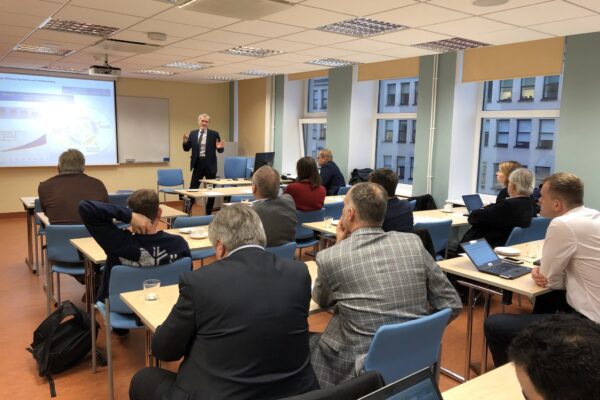As March draws to a close, we bid a fond farewell to CSHIPP implementation. Our project platform, which was kicked off in 2018, was established to promote cleaner shipping in the Baltic Sea region by bridging the gap between research, business and policy making. CSHIPP brought together representatives of seven individual projects which looked at the shared topic of clean shipping from different angles. While some of the projects focused on the technical side of sustainable shipping or on the potential in alternative fuels, others explored the concrete environmental impacts of waterborne transportation. In CSHIPP, our aim was to synthesise the findings of the individual projects and the expertise of the partners to produce and provide information on two key topics which are important for the Baltic Sea region as a whole, i.e. the environmental impacts of shipping and the business potential in clean shipping.
So, how did we fare and where do we go from here?
Well, in order to bridge the gap between research and policy making and to translate scientific findings and recommendations into practice, CSHIPP partners prepared a series of publications focusing on topics such as the impacts of shipping on air and water quality, and underwater noise. These and other publications were actively disseminated to policy makers and authorities around the Baltic Sea region. In addition, policy guidances on scrubber washwater and shore power were prepared and submitted for HELCOM GREEN TEAM and MARITIME Working Groups. Stakeholders from both public and private sectors were also invited to events, such as the Shipping and the Environment II conference and International Clean Shipping Policies webinar, meetings and personal consultations organised by CSHIPP partners to discuss the environmental issues at hand and the policy measures needed to foster cleaner shipping.
To explore business potential in clean shipping, CSHIPP partners organised workshops and events for industry representatives from the maritime sector focusing on topics such as sustainable business models for clean shipping, new clean shipping technologies, and the role of collaboration as a catalyst for commercially viable clean shipping. Publications exploring best practices in clean shipping financing, cross-sectoral collaboration in clean shipping projects and state of play and future needs for clean shipping were also prepared and made available for target group representatives.
Because we wanted to ensure that CSHIPP information and knowledge is easy to access and digest, some of our dissemination activities focused on creating online tools and ways to share information to relevant target groups through e-platforms. For example, an online portal serving as an inventory of data on shipping emissions and their impact on the Baltic Sea region was established. In addition to the portal, CSHIPP partners set up a storymap in English and in Russian to function as an online dissemination and educational tool on clean shipping in the Baltic Sea region. A short animation was also released to serve as an introduction to the work done for clean shipping in the Baltic Sea region.
All in all, platform collaboration suited CSHIPP objectives extremely well as it enabled the partners find synergies, exchange information, build up new knowledge and reach important target groups across the Baltic Sea region. The feedback we received on our outputs was largely very positive and we have been happy to notice that the efforts towards cleaner shipping seem to resonate well with both private and public sector representatives. From the partners’ point of view, transnational collaboration was crucial to get the most out of the extensive and complementary expertise of the CSHIPP consortium. Similarly, cross-sectoral collaboration and connections were perceived as essential to achieve meaningful results and changes in established practices. Now that we are wrapping up CSHIPP, we are excited to see that the collaboration has already set off further transnational projects and initiatives in the field of clean shipping. While a lot remains to be done, it truly seems that there is determination to achieve tangible results for the benefit of the Baltic Sea region now and in the future.
All CSHIPP outputs and publications remain available on our website https://cshipp.eu/publications








